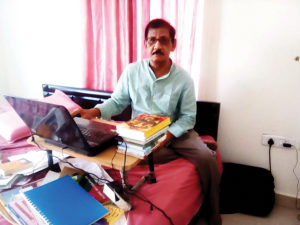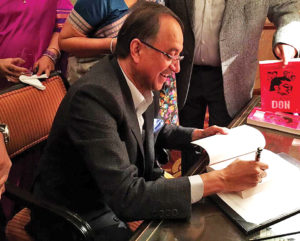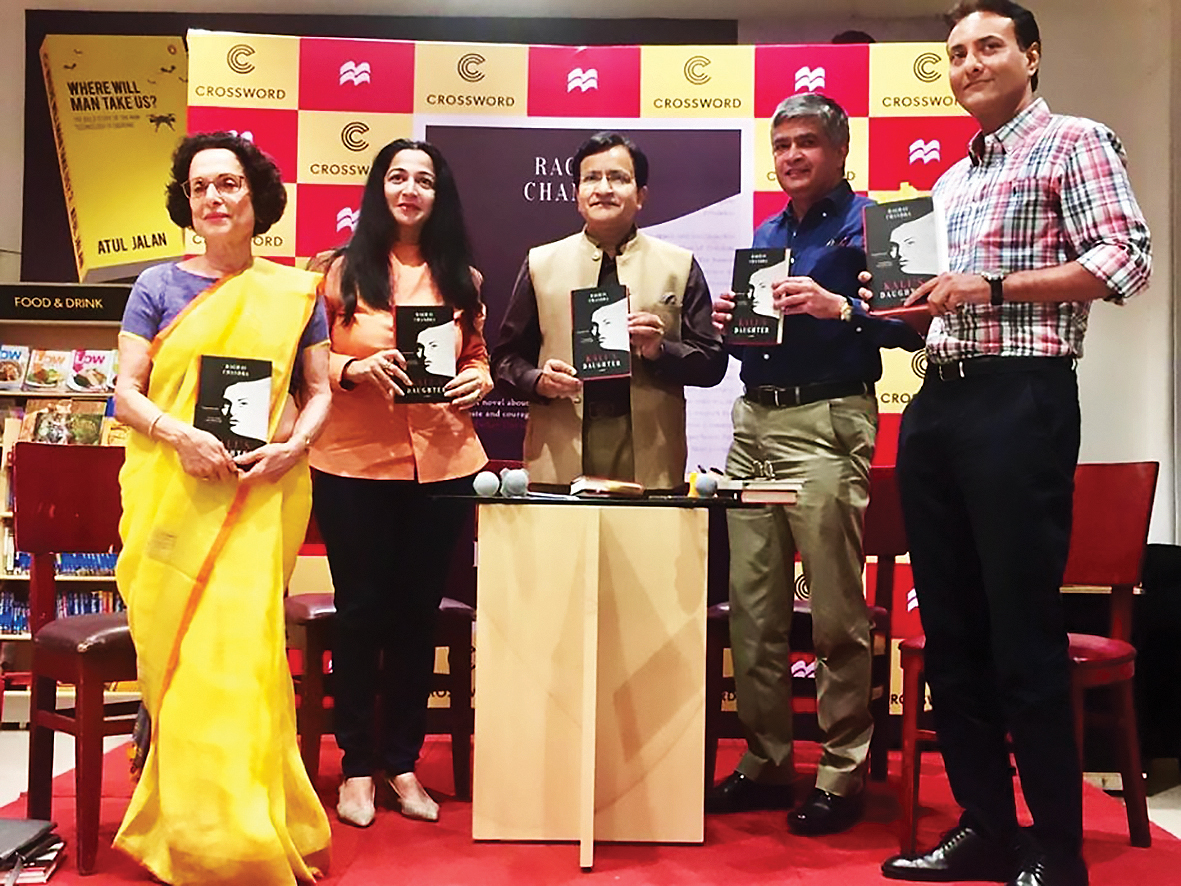Many police officers and bureaucrats have taken to writing, some after retirement. Their books give an insider’s perspective on issues and events that shaped our nation
Much of the power that bureaucrats enjoy is because they are custodians of information. Though the Right to Information Act made a dent in the steel frame, secrecy remains a norm at the cost of transparency. But not all bureaucrats, that include senior police officers, are insular about their actions and dealings in the government.
They have witnessed the unfolding of history from very close quarters. Some have the ‘urge’ to communicate, to tell their story, and is far greater than the requirement of secrecy. There is a limitation to what they can write, some have opted to write their memoir after retirement, while others gave a fictionalised version of issues and people they dealt with. Books by babus serve a great purpose, gives an insight into the functioning of government.
N Dilip Kumar retired as the special commissioner of Delhi police six years ago. He is known for employing innovative methods to solve cases — like he’s the first cop who carried out 50 sting operations as the chief of the Anti-Corruption Branch (ACB) to nab the corrupt. He always had the “urge” to express himself, and he got the necessary encouragement when he won an essay competition organised by the National Police Academy in the late 1990s. A nuclear physicist by training, he did a PhD in History. His PhD thesis was converted into a book titled Goa Police: History and Evolution.

He was posted in CBI for a long time in various capacities and had a long tenure in the North East. Towards the end of his service, because of his straightforwardness and disinclination to carry out political whims, he was sidelined. That was a blessing in disguise. He spent hours writing about his experiences that resulted in the voluminous book On Top of the Old Tak, which was published by Dorrance, an American publisher.
He never looked back after that, having written many books on socio-economic issues. One of his books describes a corrupt functionary as Bakasura — a demon with an insatiable appetite. The legend goes that Bakasura would terrorise people to feed him and even end up eating those who fed him to satisfy his hunger. The more he was fed, the hungrier he’d get. There was no stopping him. Even his ardent critics, some of them are politicians, agree that the corrupt have a Bakasura-like greed for money. “I have social activism at heart,” he says. He has nothing to hide, a lot to expose. He now does weekly columns for a leading daily in Delhi and is sitting on manuscripts of two new books waiting to be published.
Neeraj Kumar was the police commissioner of Delhi. His candidature for CBI director was ignored but he investigated many high-profile cases that include cricket betting and the underworld, to name just two. He is a good reader and has a flair for words. His thought process is cogent and articulate. He’s written two bestsellers, Dial ‘D’ For Don and more recently, Khaki Files; though his writing career was not planned and he describes it as “an unwanted pregnancy.”
It all started when he was moderating the book launch of S Hussain Zaidi’s Dongri To Dubai: Six Decades of the Mumbai Mafia. By the end of the function, it was amply clear that the moderator of the session knew much more about the underworld than the author, Zaidi, a celebrated crime writer and journalist. Kumar was unhappy that he grilled the author on his own book launch, questioning the factual premise of the book. “I owe it to him (Zaidi). Instead of taking offence, he called me the next day from the office of Chiki Sarkar (then the editor of Penguin books) and I was offered a book to write,” he recollects.

Then there is Raghav Chandra, an IAS officer of Madhya Pradesh cadre, who had an eventful tenure as Chairman of the National Highway Authority of India. Certain events during the initial days of his career made him come to the conclusion, “It’s a damn good idea to use my time in the civil services to write.” But it never really took off until 2008 when he started a blog called Scratchmysoul.com.
Why did he feel the need to blog? “It’s a platform, everybody can write there,” he explains. This blog was “thinking out loud” about a host of issues of public interest. He was blogging on a daily basis, and in the meantime, he also finished a draft of his first book Scent of a Game. Published by Rupa in 2014, it had a profound effect on some forest officials — in the way they look at their job of conservation of wildlife and
forests.
In 2017, he was posted as the secretary of the National Commission of Scheduled Tribes. He was face-to-face with the cases of atrocities against Dalits and Scheduled Tribes. In this new role, he felt there a story “crying out to be told”. Chandra wrote Kali’s Daughter, a story about a young Dalit girl who gets into the Indian Foreign Services, and is faced with a dilemma of having to refute a report on caste-based discrimination before the United Nation’s Human Rights Council.
The book is a non-Dalit perspective that deals with the caste dynamics in a subtle way. “Writing gives me a sense of peace and solace, to be able to write about subjects that I feel strongly about.” He doesn’t call himself a writer: He prefers the word “raconteur.”
Maxwell Pereira served in Delhi Police for 35 years was known as ‘the thinking cop.’ His case is different, for he was a writer before he became a police officer and never really stopped writing. He has a body of literature to his credit, still maintains a diary and records his thoughts on a daily basis.
The much talked about book, The Tandoor Murder, authored by him gives us an insider’s account of Naina Sahni’s murder. Her burnt body was discovered in a tandoor of a restaurant, shocking the entire country.
Please don’t be mistaken, most of his writing is not based on his official work. A prolific writer, Pereira is creative in his themes, like fictional writing. “But there’s not much of a market for it,” he says. Successful books like God of Small Things by Arundhati Roy are an exception, not the norm. At the age of 75 years, his plate is full. “A lot of effort and time goes into the publishing of a book. I don’t have the time,” he says.
All these officers have been able to document their contribution to public life and shown that babus can also write. Like Neeraj Kumar sums up, “I have this pleasant feeling that my writings will remain after me, all these stories are for posterity.”





